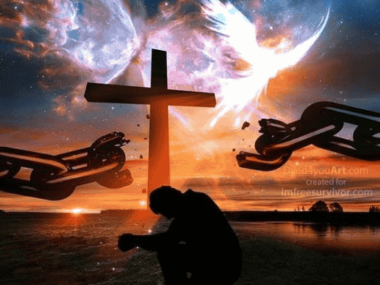My dissertation argues for interdisciplinary collaboration between clergy and mental health professionals to address the rising rates of mental illness and requests for deliverance ministries in the United States. I examine the historical relationship between religious and psychological understandings of mental illness, highlighting the problematic aspects of solely spiritual or solely medical approaches. I propose a biopsychosocial-spiritual model for holistic care, integrating faith-based interventions with evidence-based treatments. My study includes surveys of clergy and mental health professionals, exploring their views on demonic oppression and mental illness. Finally, I offer a framework for fostering dialogue and collaboration between these fields to better serve those struggling with mental health challenges and spiritual distress.
Main Themes
The Historical and Theological Context of Demonic Oppression and Mental Illness
The document establishes a biblical and theological foundation for understanding demonic oppression, drawing from both Old and New Testament narratives. It emphasizes Jesus’s ministry of healing and exorcism, highlighting the commissioning of the disciples to continue this work. It also acknowledges the historical evolution of perspectives on mental illness, tracing the shift from supernatural explanations to the emergence of modern psychiatry.
Quote: “As discussions of demonic oppression and mental illness will be among members of the clergy, a biblical and theological reflection is necessary and will serve as the foundational base for interdisciplinary dialogue with mental health professionals.”
Dr Juanda Peters
Diverse Approaches to Healing
The document explores different perspectives on healing within the Christian community, ranging from the exclusive reliance on prayer and spiritual interventions to the complete dismissal of demonic influence. It critiques the potential harm of solely attributing mental illness to spiritual causes, emphasizing the need for a nuanced and informed approach. It also examines the Biopsychosocial model and the Bio-Psycho-Socio-Spiritual (BPS-S/R) model, highlighting the importance of addressing biological, psychological, social, and spiritual factors in understanding and treating mental illness.
Quote: “Although the praxis of casting out demons as a treatment modality is used in this orientation, and while it can be seen as commendable in following the mandate of Jesus, it also reinforces the long-standing stigma associated with mental illness in the church.”
Dr Juanda Peters
The Urgent Need for Interdisciplinary Dialogue
The document establishes a biblical and theological foundation for understanding demonic oppression, drawing from both Old and New Testament narratives. It emphasizes Jesus’s ministry of healing and exorcism, highlighting the commissioning of the disciples to continue this work. It also acknowledges the historical evolution of perspectives on mental illness, tracing the shift from supernatural explanations to the emergence of modern psychiatry.
Quote: “As discussions of demonic oppression and mental illness will be among members of the clergy, a biblical and theological reflection is necessary and will serve as the foundational base for interdisciplinary dialogue with mental health professionals.”
Dr Juanda Peters
Key Ideas and Facts:
- The document acknowledges the cultural and historical backdrop of Jesus’s ministry, emphasizing the prevalence of supernatural beliefs in that era.
- It highlights the commissioning of the twelve and seventy disciples to heal the sick and cast out demons, emphasizing the continuation of this ministry in the Christian church.
- The document critiques the “deliverance silo” approach, which solely attributes mental illness to spiritual causes, potentially causing harm through stigma and judgment.
- It presents the Biopsychosocial and BPS-S/R models as frameworks that consider the complex interplay of biological, psychological, social, and spiritual factors in mental illness.
- The document reviews various theological and counseling models, including Nouthetic counseling and the concept of sickness as a blessing, analyzing their strengths and limitations.
- It discusses the impact of the Renaissance and the Enlightenment on the separation of science and religion, contributing to the divide between psychology and theology.
- The document explores the Adverse Childhood Experiences (ACEs) study and its implications for understanding the impact of trauma on mental health.
- It examines the resurgence of exorcism in contemporary times, noting the increase in requests for deliverance and the renewed interest in demonic possession within both religious and secular contexts.
- The document presents case studies and anecdotes from clinicians who have encountered demonic manifestations in therapeutic settings.
- It emphasizes the need for interdisciplinary dialogue and collaboration, advocating for a holistic approach that recognizes the interconnectedness of spiritual and mental well-being.
Conclusion:
My dissertation ultimately calls for a paradigm shift in addressing the complex intersection of mental health and spiritual experience. It advocates for a collaborative approach that draws upon the expertise of both clergy and mental health professionals. By fostering respectful dialogue, understanding diverse perspectives, and embracing a holistic understanding of healing, this interdisciplinary collaboration can provide more comprehensive and compassionate care for individuals experiencing mental and spiritual distress.

